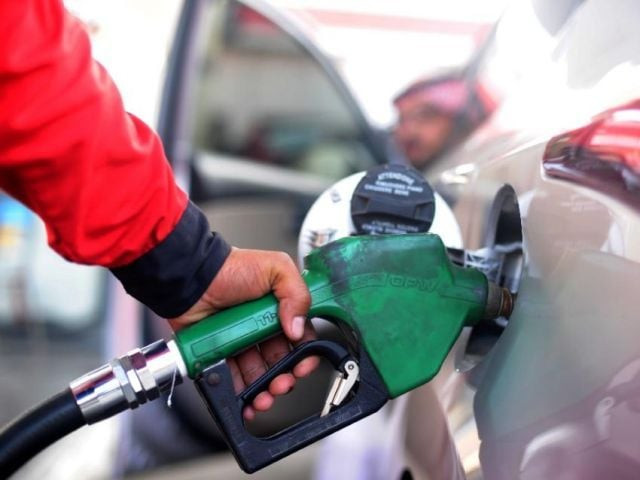POL prices hiked to protect revenues
Cabinet gives ex-post facto approval for increase in prices from June 26

The federal cabinet on Tuesday gave ex-post facto approval for up to 66% increase in petroleum product prices that Prime Minister Imran Khan consciously decided to enforce from last week of June to protect nearly Rs8 billion worth of revenues.
The federal cabinet approved a summary of the Ministry of Finance to endorse the prime minister’s decision to increase the petroleum prices with effective from June 26. The government had to secure the cabinet’s nod as it increased the prices without following the laid-down procedures to protect its revenues.
The cabinet also approved the appointment of Rahat Kaunain Hasan as new chairperson of the Competition Commission of Pakistan (CCP). She has already worked with the adviser to prime minister on finance as the CCP chairperson during Shaikh’s last stint as the finance minister (2010-13).
Some cabinet ministers opposed appointment of Rahat as CCP member and chairperson due to allegations of nepotism during her last stint as chairperson, sources told The Express Tribune. But PM’s Secretary Azam Khan informed the cabinet that nothing could be proved against her in an inquiry, said the sources.
On June 25, the finance ministry had recommended the prime minister that due to increase in petroleum prices in international market, the prices have to be increased for the domestic market, according to the cabinet documents.
The finance ministry’s summary noted that as per oil pricing formula, the prices of petrol, high speed diesel and light diesel oil are changed automatically but capped with Pakistan State Oil’s (PSO) last month average price, being monitored by the Oil and Gas Regulatory Authority (Ogra) while the price of kerosene oil is fully regulated by the Ogra.
Therefore, prior to the price announcement, Ogra verifies the PSO’s prices and sends ex-depot sale price summary of the petroleum products to the Petroleum Division for onward submission to the Finance Division, for final adjustment in the prices through petroleum levy. However, in this case Ogra had not moved the summary and the government increased the petrol prices by Rs25.58 to Rs100, high speed diesel by Rs21.31 to Rs101.46, kerosene oil by Rs23.50 to Rs59.06 and light diesel oil by Rs17.84 to Rs56 per litre.
This created a huge hue and cry among the people and the political parties but the government remained steadfast.
The Petroleum Division’s working suggested that based on the last average price, the petrol price was Rs106 and high speed diesel rates came to Rs104.46 per litre.
The working had been done without compromising the tax rates that are currently at the maximum and in case of the petroleum levy the highest ever. The ex-depot sale price of petroleum products is based on previous month import price and other components including inland freight equalisation margin, oil marketing companies and dealers’ margin, customs duty, petroleum levy and 17% GST.
The Finance Division had proposed the prime minister to provide some relief in prices of petrol and high speed diesel either by reducing the petroleum levy rates and increase the prices from July 1 or spread the increase to 36 days to protect the maximum petroleum levy rates. The finance ministry’s proposal was that some relief can be provided “by reduction in petroleum levy rates which have already touched the maximum level of Rs30 per litre, if this does not impact the government of Pakistan’s revenue target. Under this scenario, the prices will be effective from July 1, 2020. The petroleum levy will be reduced by Rs7.8 billion in July 2020.
The second option was that “the increase may be spread over a large period for next 36 days (June 26 to July 31) but at a lesser rate. In order to implement it, the Petroleum Division has proposed that change may be made in the rates immediately tonight”.
The PM picked the option of increasing the rates from June 26 without reducing the petroleum levy rates.
The PM was told that in case of spreading the increase over 36 days, the OMCs/ refineries will recover less revenue in July 2020, more revenue in remaining five days of June.
The other benefit the government achieved by increasing prices from June 26 was to end speculation, which it otherwise could not have done due to its weak governance.
The federal cabinet also approved to appoint three new members of the CCP and Rahat Kaunain Hasan has been appointed as chairperson. A ministerial committee had unanimously recommended the panel of nine persons in the order of merit for appointment against three vacant posts of the member CCP.
Rahat Kaunain Hassan, Shomaila Loan, Mueen Batlay, Samir Ahmed, Mohammad Bilal, Salman Amin, Mujtaba Ahmed Lodhi, Ikramul Haque Qureshi and Khaqan Hasan Najeeb.
The federal cabinet decided to pick first two names, Rahat Kaunain and Shomaila Loan, in order of merit and ignored the third name of Mueen Batley. Instead it approved number seventh on merit list, Mujtaba Ahmad Lodhi as the third CCP member.
Khaqan Hasan Najeeb, who had remained director general of institutional reforms unit of the finance ministry for about 10 years was at the bottom of the merit list.
Published in The Express Tribune, July 8th, 2020.
Like Business on Facebook, follow @TribuneBiz on Twitter to stay informed and join in the conversation.


















COMMENTS
Comments are moderated and generally will be posted if they are on-topic and not abusive.
For more information, please see our Comments FAQ